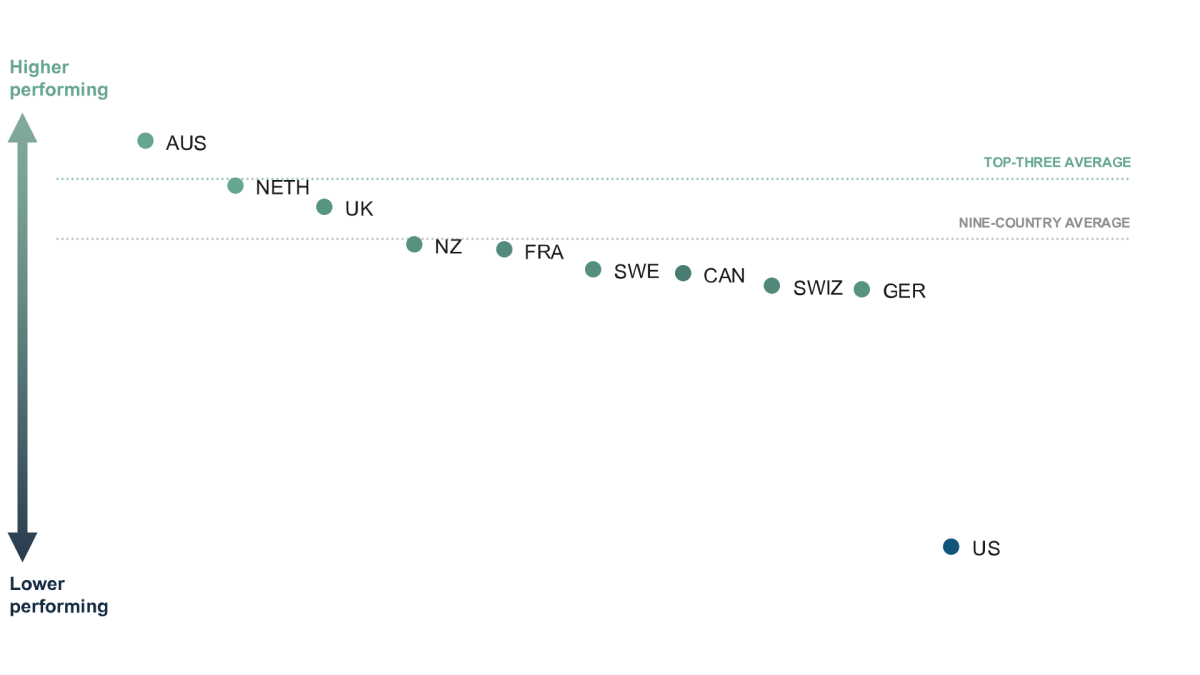Stress in the school system
The U.S. grading system vs. the UK grading system
According to PsychologyToday.com the average high school student today has the same level of anxiety as the average psychiatric patient in the early 1950s. People are having their mid-life crisis at 17. The reasons for this are abundant: increased pressure due to grades, classes, sports, jobs, friends, family, etc.
As a junior in high school, I am constantly being told, “ Junior year is the most important.” Just recently, at a family Christmas party, one of my aunts greeted me and asked what year of high school I was in. After telling her I was in 11th grade, she responded with a rather stressful soliloquy regarding the seriousness of junior year which resulted in me slowly backing away to avoid the dreaded question, “So what are you thinking of doing in college?” Of course, when the party was over, I found myself still pondering the unavoidable question, as I had many times before.
Upon arriving home, I used the suggested websites given to us by the Guidance Dept. to conduct research on different college majors, schools, careers, internships, SAT and other standardized tests, GPA’s, and the list goes on… While on this quest to find answers, I noticed something that caught my glazed-over eyes: the United Kingdom’s grading system.
The UK grading system varies greatly from the US. In the UK: 70-100 is distinction; 60-69 is a merit; 50-59 is a pass; 40-49 is a tolerated fail; less than a 40 is failing (UNCO.edu). After reading this, two main thoughts entered my mind. First, how reassuring it must be to not completely fail, but instead receive a tolerable fail. Second, why does the US not follow a system similar to this one? The US system is on a scale of 0-100 percent yet a failing grade is from a 69 percent and below, therefore making the scale seem much smaller. There’s also the fact that if I received a 75 on an assignment it could be an A instead of a C. How wonderful would it be if that were true. I figured there had to be some kind of catch, and there is.
Students in the UK have a much more difficult time obtaining high marks in the 70-100 range. The average grades are around a 70 or lower. This is a concept that is hard to grasp after attending a school where below a 70 is failing. If the average grades I recieve are marked lower than a 70 it would cause pure panic, even if it is considered a merit grade. I would not choose to switch to this type of system where the grades fall much lower on the scale.
After processing this information, I realized that different grading systems would still result in problems that cause stress over grades. Of course, I could have figured that out on my own, but a minuscule part of me was hoping I could tell my mom that if we used the UK grading system, I would have aced all of my exams.
Your donation will support the student journalists of North Kingstown High School. Your contribution will allow us to distribute a print edition of the Current Wave to all students, as well as enter journalism competitions.












Zahra Lightway
Dec 13, 2017 at 9:52 PM
I went to school in the UK and college in the US and I remember how horrified I was with the US grading system when I first heard about it. I couldn’t imagine at all having to get 70 just to pass or 90 to get an A. But after one semester all my fears were allayed. I definitely felt like it was easier to get 90 + in the States than it was to get a 70 in the UK.
Here’s my take.
The UK grading system is better because it allows people to mess up and still do well. If we can’t make mistakes then we don’t learn as well. American students are far less likely to take risks with their exploration of concepts and ideas because getting it wrong could be catastrophic.
Also as a teacher in the US, I found that I had to really dumb things down in order for my students to pass and do well. I had to keep questions simple – multiple choice, short answer, fill in the blank and so on. Whereas in the UK essay exams asking students to explore concepts and ideas and present them in a coherent manner are the norm. The learning is deeper. Neither retain the specific knowledge bytes much better than the other, BUT in the UK they learn better how to think and express their ideas.
So that’s my experience of it all. Thanks for posting. Was cool to read another perspective.